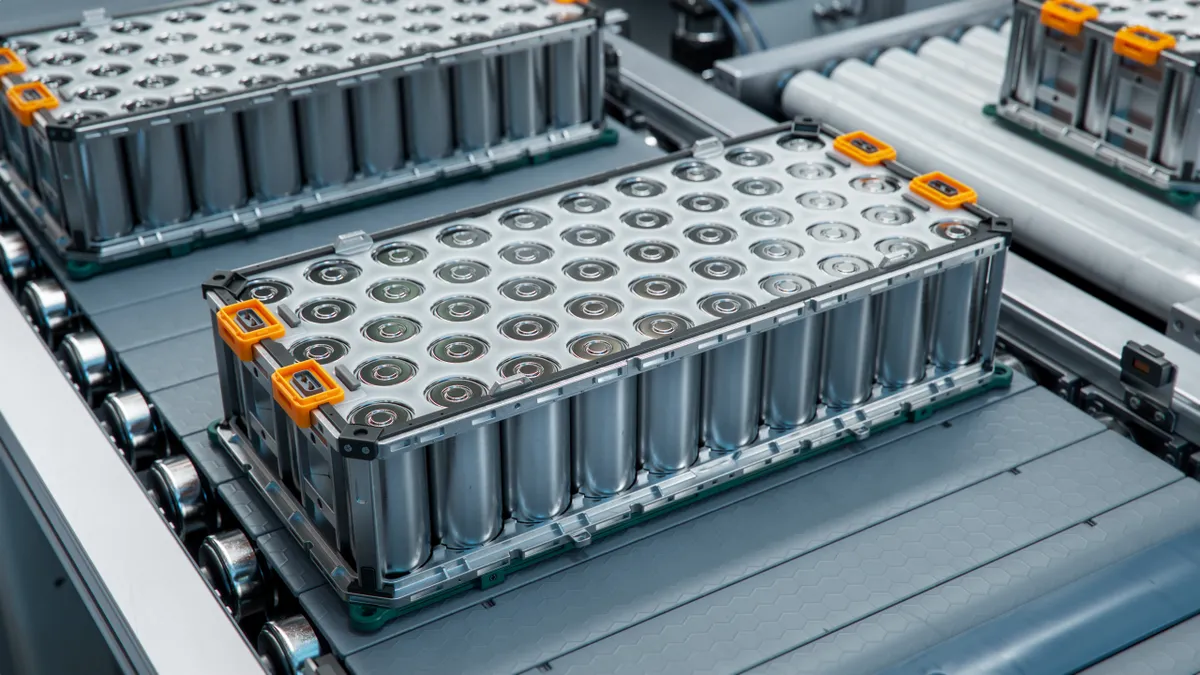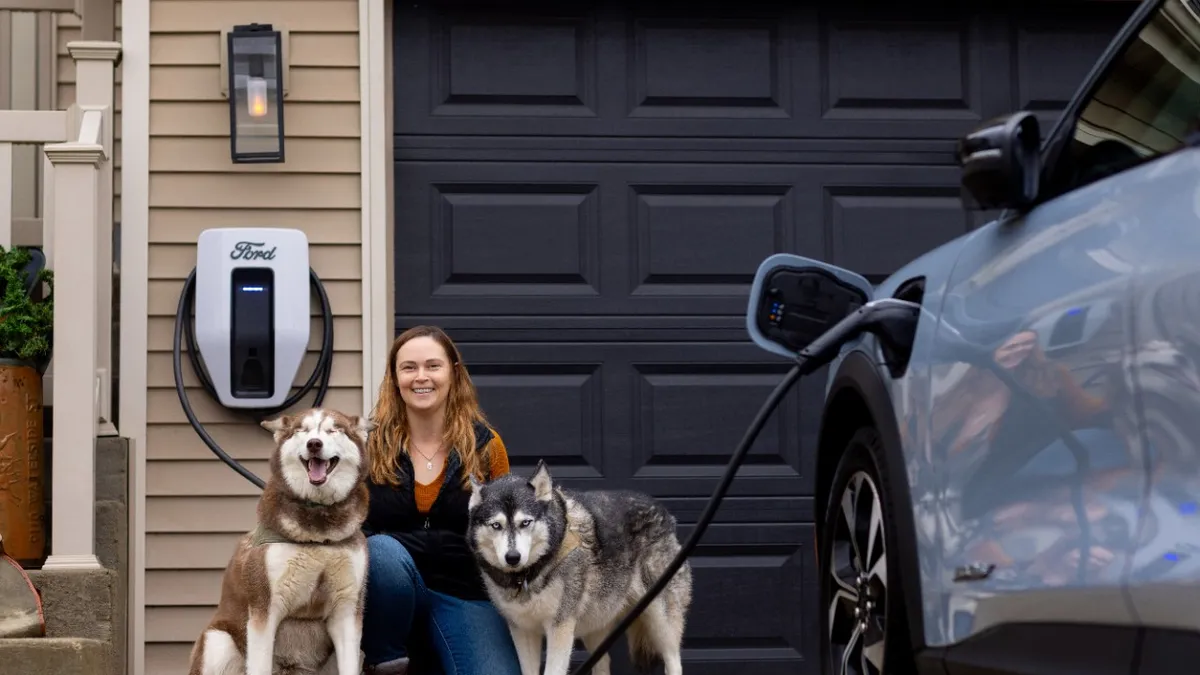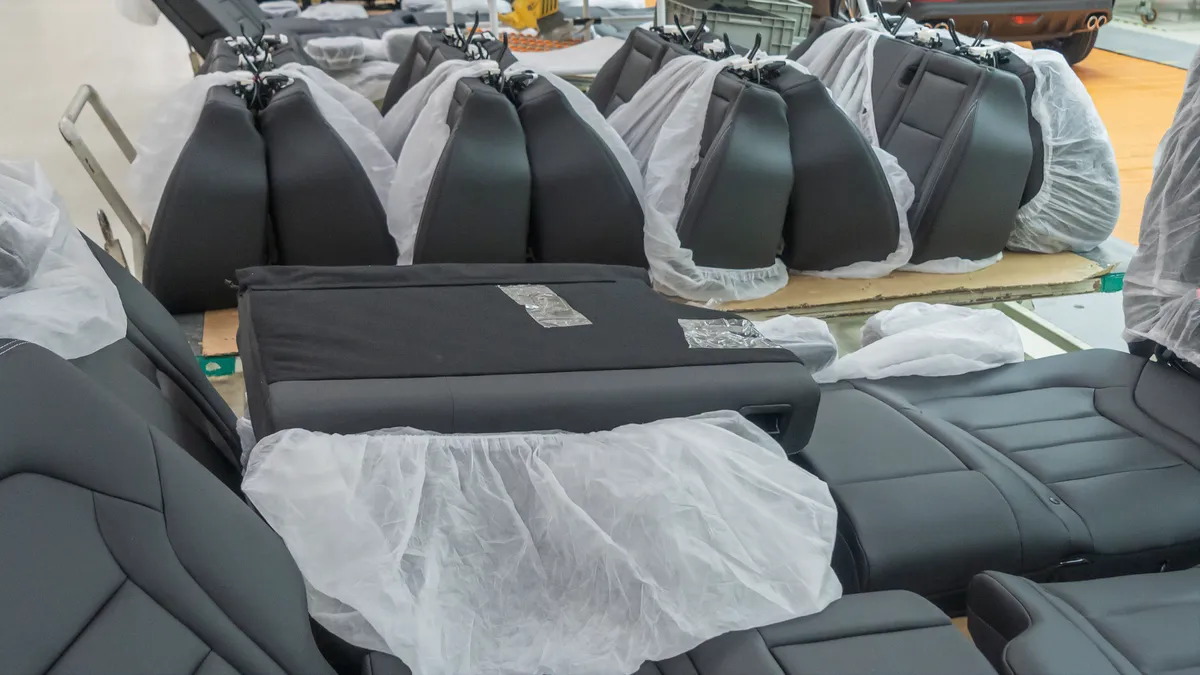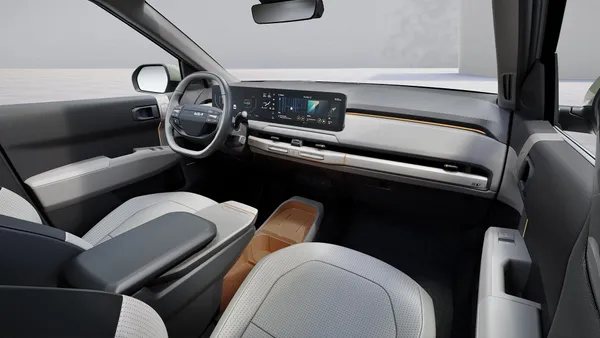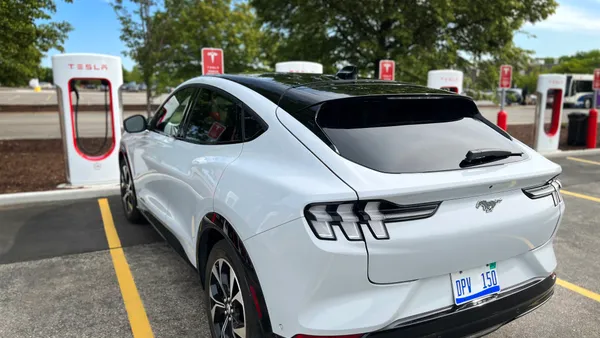Dive Brief:
- The Energy Department's latest battery manufacturing funding is focused on research and development to enhance durability and lower battery price points in the transportation sector.
- The United States Advanced Battery Consortium in Southfield, Michigan, will receive $60 million to further develop lightweight, lower-cost batteries for light-, medium- and heavy-duty vehicles and less expensive battery recycling processes.
- The remaining $71 million is for 27 projects working on increasing EV drive range, lowering battery costs, advancing on-board EV charging systems and increasing EV drive range.
Dive Insight:
The department's funding is an aspect of the Biden administration's push to diversify the country's battery portfolio in search of cheaper, more readily available components that can power the U.S. energy transition.
One such possible component – sulfur.
The DOE funds include millions of dollars for experimentation with the alternative battery form lithium-sulfur. Battery startups Lyten and Zeta Energy, as well as manufacturing company Coherent each received more than $3 million to further develop lithium-sulfur, which is said to be cost-efficient and more energy dense than ion-based batteries, according to Argonne National Laboratory.
Purdue University, the University of California, Colorado School of Mines and the University of South Carolina also received funding to research and develop lithium-sulfur batteries.
OEMs also got in on the funding to further explore hydrogen-powered engines. Cummins received $5 million to develop wireless charging solutions for heavy-duty vehicles. It and Paccar were also both granted $3.5 million for R&D related to hydrogen internal combustion engines for heavy-duty vehicles.
Cummins has developed two hydrogen-fueled concept engines over the past two years, touting the power source as a clean alternative that targets vehicles with demanding driving needs, high asset utilization, high route diversification and challenging environmental conditions. Neither engine has hit the commercial market yet.
Paccar, Cummins and Daimler are also revving up their commercial battery production. The three OEMs are building an up to $3 billion battery plant in Mississippi to manufacture lithium iron phosphate batteries for commercial electric trucks.
The Energy Department has been busy kicking off 2024 with EV-related funding. A day after announcing the $131 million for EV batteries and charging, the department awarded $46 million for EV charging reliability improvements and workforce developments.



